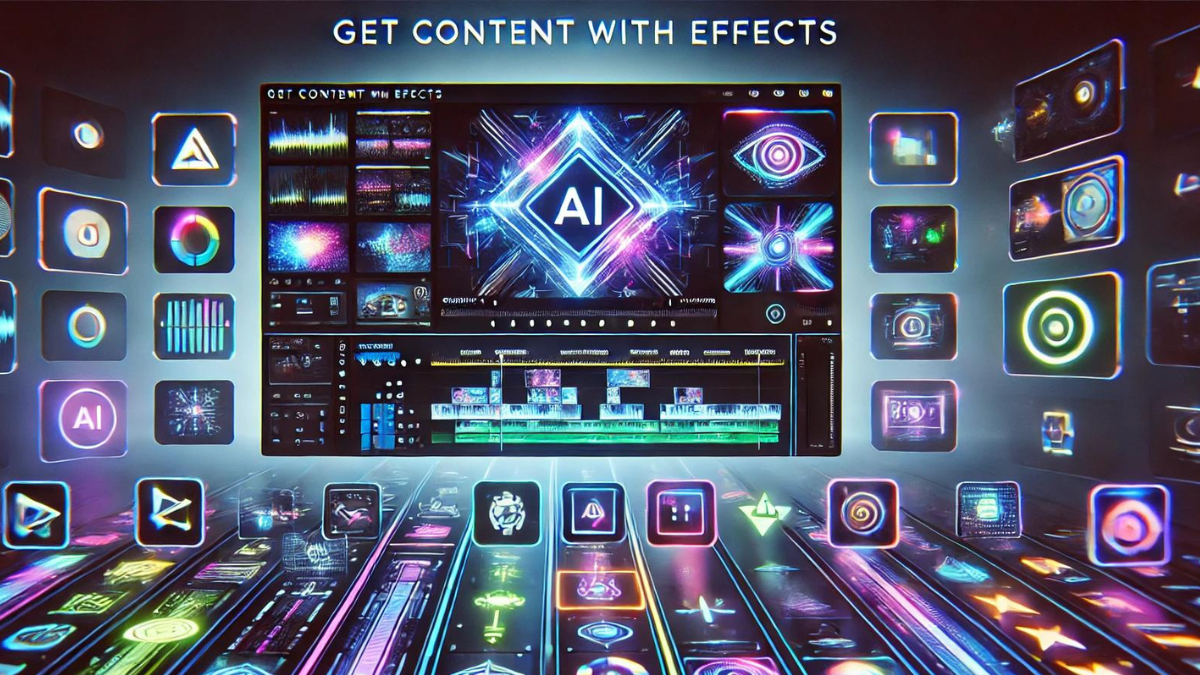In recent years, AI-powered tools for custom recommendations have gained immense popularity. These tools leverage artificial intelligence to offer personalized suggestions based on user behavior, preferences, and historical data. From e-commerce to entertainment, these tools are transforming the way businesses and individuals interact with technology. The keyword here is “customization” — AI analyzes vast amounts of data and tailors recommendations, creating a unique experience for every user.
The rise of machine learning and deep learning has significantly enhanced the accuracy of these AI-powered systems. The algorithms used in such tools continuously learn and adapt to new data, improving their suggestions over time. As students, professionals, and businesses seek more personalized experiences, these tools offer tailored solutions that save time and improve user satisfaction.
Table of Contents
Why Use AI-Powered Tools for Custom Recommendations?
AI-powered tools provide several benefits, making them highly valuable for beginners.
- First, they save time by quickly analyzing user preferences, offering suggestions without manual searching.
- They also enhance decision-making by presenting the most relevant options based on individual preferences.
- This is particularly helpful for students, as they can find study resources, books, or courses that match their learning style or interests.
When selecting AI-powered tools, users should consider the quality of recommendations, ease of integration, and the tool’s ability to learn and improve over time. Additionally, privacy and data security are crucial, as these tools rely heavily on personal data to generate accurate suggestions.
15 AI-Powered Tools for Custom Recommendations
With the growing demand for personalized recommendations, a wide range of AI-powered tools have emerged to cater to various industries. Whether you’re looking for tools in e-commerce, education, or entertainment, there are numerous options available. Each tool uses advanced algorithms to tailor suggestions based on user preferences. Below is a list of 15 AI-powered tools that can help you with personalized recommendations.
1. Nosto
Nosto is an e-commerce personalization tool that uses AI to improve customer experiences by offering tailored product recommendations. It’s particularly useful for global businesses due to its support for multiple languages and currencies. Nosto analyzes customer behavior in real-time to enhance engagement and boost revenue, making it a go-to solution for personalized shopping experiences.
Features:
- Real-time personalized product recommendations
- Customer segmentation
- Supports multiple languages and currencies
- Dynamic content customization
- Seamless integration with e-commerce platforms
- Automated A/B testing for performance optimization
- Detailed analytics and reports
Pros:
- Easy to use for beginners
- Global business support
- Real-time analytics for effective personalization
Cons:
- Limited advanced customization for larger businesses
2. Salesforce Einstein
Salesforce Einstein integrates AI with the Salesforce platform, providing personalized product recommendations, predictive analytics, and automated marketing. This tool is especially useful for businesses already using Salesforce, offering seamless integration and boosting customer satisfaction through personalized interactions.
Features:
- Predictive analytics for customer insights
- Personalized product recommendations
- Automated marketing campaigns
- Real-time customer behavior analysis
- Integration with Salesforce CRM
- Customizable dashboards and reports
- Seamless email and social media automation
Pros:
- Ideal for existing Salesforce users
- Automated recommendations boost efficiency
Cons:
- Expensive for small businesses
3. Recombee
Recombee is an AI tool designed to personalize product suggestions based on user behavior. It’s perfect for businesses looking for flexibility, offering content-based and collaborative filtering methods to recommend products.
Features:
- Flexible recommendation engine
- Collaborative and content-based filtering
- Integration with various e-commerce platforms
- Real-time data analysis
- Multi-language support
- Advanced API for easy integration
- Detailed reports on user interaction
Pros:
- Flexible, supports various recommendation techniques
- Easy integration with e-commerce systems
Cons:
- May require technical expertise to set up advanced features
4. Google Recommendations AI
Google’s Recommendations AI is part of its Cloud suite, enabling businesses to create custom recommendation systems using advanced machine learning. It supports scalable infrastructure and offers predictive models without needing deep AI expertise.
Features:
- Scalable AI infrastructure
- Pre-built models and APIs
- AutoML for custom model building
- Real-time recommendations
- Seamless integration with Google Cloud
- Multi-industry support
- User-friendly interface for developers
Pros:
- Scalability for large datasets
- User-friendly for beginners
Cons:
- Complex pricing structure
5. Amazon Personalize
Amazon Personalize offers machine learning-based personalization for real-time recommendations. This tool helps companies improve customer experiences by delivering tailored product and content recommendations.
Features:
- Real-time personalization
- Customizable machine learning models
- Supports various recommendation techniques
- Easy integration with existing systems
- Real-time data ingestion
- Automated insights and analytics
- Scalable for large datasets
Pros:
- Offers powerful real-time recommendations
- Customizable for different industries
Cons:
- Requires some coding knowledge
6. Algolia Recommend
Algolia Recommend is a search and discovery tool that uses machine learning to recommend relevant products based on user behavior. It’s fast and scalable, making it a good choice for large e-commerce websites.
Features:
- Fast product discovery
- Machine learning-powered recommendations
- Seamless integration with existing platforms
- User behavior analysis
- Personalized search results
- Real-time analytics
- Scalable infrastructure
Pros:
- Extremely fast and scalable
- Easy integration with various platforms
Cons:
- Higher pricing for small businesses
7. IBM Watson Studio
IBM Watson Studio provides a robust environment for developing AI models, including recommendation engines. It simplifies model training and deployment, enabling businesses to create personalized experiences using AI.
Features:
- AutoAI for automated model training
- Advanced data analysis tools
- Seamless integration with IBM Cloud
- Real-time customer interaction analysis
- Predictive analytics for personalization
- Collaboration tools for teams
- Real-time deployment of AI models
Pros:
- Easy model training with AutoAI
- Great for large-scale businesses
Cons:
- Learning curve for beginners
8. H2O.ai
H2O.ai is an open-source AI platform that democratizes machine learning by offering accessible tools for building recommendation systems. It provides features like AutoML to simplify the creation of predictive models.
Features:
- Open-source AI platform
- AutoML for simplified model creation
- Supports deep learning and machine learning
- Scalable for large datasets
- Real-time recommendation engine
- Integration with popular programming languages
- Advanced analytics and insights
Pros:
- Open-source and customizable
- Supports deep learning
Cons:
- Requires technical expertise to set up
9. MindTitan
MindTitan specializes in AI-driven product recommendations, improving customer experience and engagement. It uses complex customer profiles to match the right products at the right time, helping businesses boost sales.
Features:
- AI-based real-time recommendations
- Collaborative filtering and content-based techniques
- Data analysis to improve user experience
- Personalized customer profiles
- Scenario testing for customer interactions
- Cross-selling and upselling recommendations
- Advanced machine learning models
Pros:
- Great for improving user engagement
- Advanced recommendation techniques
Cons:
- Cold start problem for new users
10. Appier AIQUA
Appier AIQUA provides personalized customer engagement solutions, offering targeted recommendations and marketing strategies. It uses behavioral data to offer dynamic content to users across platforms.
Features:
- Cross-platform personalized recommendations
- Behavioral data analysis
- Dynamic content delivery
- Targeted marketing campaigns
- Real-time insights and analytics
- A/B testing for performance optimization
- Seamless integration with CRM tools
Pros:
- Works across multiple platforms
- Provides real-time engagement insights
Cons:
- Requires technical setup
11. Coveo
Coveo is an AI-powered search and recommendations platform that enhances customer experience by personalizing search results and content. It’s ideal for companies looking to boost user engagement.
Features:
- Personalized search results
- AI-powered recommendations
- Behavioral data analysis
- Easy integration with various platforms
- Real-time content updates
- Multi-language support
- Customizable dashboards
Pros:
- Great for personalized search experiences
- Easy to integrate
Cons:
- May require technical expertise
12. Dynamic Yield
Dynamic Yield offers personalization services for marketing and product recommendations. Its AI capabilities allow businesses to tailor content, products, and even layout designs to user preferences.
Features:
- Real-time product recommendations
- Personalized content and layout design
- Automated A/B testing
- Data-driven marketing campaigns
- User segmentation for targeted content
- Seamless integration with e-commerce platforms
- Predictive analytics
Pros:
- Highly customizable recommendations
- Automated testing and optimization
Cons:
- May require technical resources for customization
13. Segment
Segment helps businesses create personalized customer experiences by collecting and analyzing customer data. It provides real-time recommendations and helps businesses optimize their product offerings.
Features:
- Real-time customer data collection
- Personalized product recommendations
- Integration with marketing tools
- Predictive analytics for user behavior
- Dynamic content customization
- User segmentation
- Cross-platform support
Pros:
- Easy-to-use interface
- Great for data-driven decisions
Cons:
- Limited advanced features for larger businesses
14. Argoid
Argoid is an AI recommendation platform designed for media, e-commerce, and content platforms. It offers highly personalized recommendations based on user behavior and preferences.
Features:
- Real-time content and product recommendations
- AI-driven insights
- User behavior tracking
- Integration with media and e-commerce platforms
- Dynamic content delivery
- Predictive analytics
- Scalable for large datasets
Pros:
- Easy to integrate with media platforms
- Offers real-time recommendations
Cons:
- Pricing may be high for small businesses
15. Insider
Insider provides AI-powered personalization tools for websites and mobile apps. It helps businesses deliver personalized recommendations and content to improve user engagement and conversion rates.
Features:
- Cross-platform recommendations
- Behavioral data analysis
- Dynamic content personalization
- A/B testing for optimization
- Real-time analytics
- Easy integration with marketing tools
- Predictive user segmentation
Pros:
- Cross-platform support
- Real-time performance insights
Cons:
- Limited customization for complex needs
These tools offer a variety of solutions depending on the scale and needs of a business, helping to create personalized experiences and improve customer engagement.
Conclusion
AI-powered tools for custom recommendations are revolutionizing user experiences across various fields. As the technology evolves, its ability to offer precise, personalized solutions will only improve, making it an indispensable resource for students and professionals alike. By understanding how these tools work and choosing the right ones, users can significantly enhance their decision-making processes.



